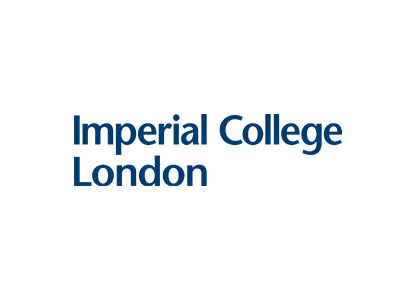Imperial College London
Imperial College London is a public research university in London, which was established in 1907. Imperial is a highly renowned STEM (science, technology, engineering, and mathematics) university, whose affiliations include 14 Nobel laureates, 3 Fields Medalists, and 1 Turing Award winner. According to the QS World University Ranking of 2022, Imperial is ranked 7th in the world and 3rd in Europe. Imperial College delivers world class scholarship, education and research in science, engineering, medicine, and business, regarding their application in industry, commerce, and healthcare.
The Control and Power (CAP) is one of the five research groups associated with the Department of Electrical and Electronic Engineering at Imperial, which is active in research pertaining to current challenges in control design and power networks. Professor Bikash Pal leads one of the main research groups within CAP, which has produced 22 PhD graduates, and about 120 reputed journal papers to this date.

Contribution
Imperial College will leverage its expertise in control and optimization tasks in WP3, where it will lead Task 3.1 regarding the co-optimization of energy vectors. With the developed algorithms in this task, it will support the development of the ecoEMS/Microgrid, and ecoDR tools (Task 4.1 and 4.2). Additionally, Imperial will provide its expertise on the emerging grid-forming control technology for supporting the development of the ecoConverter tool (Task 4.3). Imperial will also lead the development of the ecoCommunity tool (Task 5.3), which requires experience and understanding of both the developed (EU) and developing (India) countries. Moreover, Imperial will play a major role in WP9, where it will lead two tasks – exploitation plan and commercialization analysis (Task 9.3) and knowledge exchange between EU and India (Task 9.4). The latter task (Task 9.4) will be based on Imperial’s long record of past successful collaboration activities with Indian research partners.
Relevant projects
- JUICE (JUICEP: EP/P003605/1): The Joint UK-India Clean Energy Centre (JUICE) aims at decarbonizing the energy chain by helping in greater uptake of photovoltaics and storage technologies into the power network. JUICE is helping both the UK and India to realize their ambitious carbon reduction targets. The research in the JUICE projects focuses on the challenges of the intermittent renewable generations, the needs for energy storage, demand management and flexible electricity networks. This project is evidence of successful collaboration between the group and India partners, some of whom participate in this proposal’s consortium.
- InnoCyPES (H2020-MSCA-ITN-2020 EESC-P85490- 956433): The principal goal of the InnoCyPES (Innovative Tools for Cyber-Physical Energy Systems) ITN is to study, investigate and improve various facets of digitalized and interconnected energy systems. Supervised by a consortium of prominent and experienced academic institutions, research institutes and industrial partners, it will collaboratively develop a cutting-edge system management platform that covers the entire lifecycle of data for energy system planning, operation and maintenance, based on an understanding of the energy system as a cyber-physical system.
- SOL-DEV(RAENG: RF\201819\18\86): The SOL-DEV project aims to explore and tackle solar integration challenges in developing countries, focusing mainly on India. It investigates new methods of controlling the PV systems and new structures of microgrids, leverages recent advances in energy storage technologies and explores both grid-connected and off-grid solar systems in isolated rural areas. The main aim is to show the way for sustainable development, improved energy access and social welfare, with a special focus on underserved Indian rural communities, which is well-aligned to this proposal.
- PVCI (H202-MSCA-IF-2016): The PVCI project investigates the main technical limitations of PV systems that do not allow high solar penetration into the electrical network. The main objective is to develop enhanced inverter control methods to convert the PV systems to more grid-friendly power stations.
- PV2025 (EP/K02227X/1): PV2025 aims to maximise the benefits and limit the costs for UK plc while having a vibrant PV market. The project considers different socio-economic drivers, cost curves of PV and work on installation scenarios giving links to likely social background of installations, locations and quantities. The project further provides recommendation of measures to strengthen infrastructure through a cost-benefit analysis of the PV technology to be undertaken.
- SUPERGEN (EP/E04011X/1): The project has the goal of researching the future form of the electricity network, which is important considering the UK network has been constructed more than 60 years ago. The key is to plan, design and build networks that are sufficiently flexible to meet several different scenarios.
